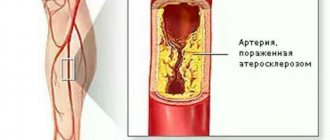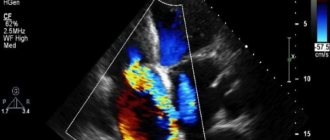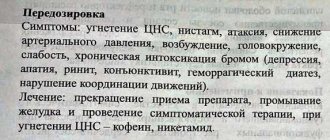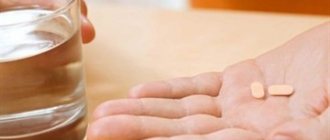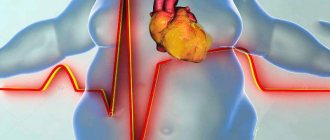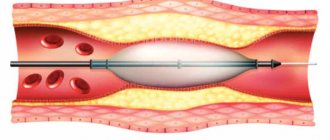Comparison of the effectiveness of Nitroglycerin and Nitrocor
The effectiveness of Nitroglycerin is quite similar to Nitrocor - this means that the ability of the drug substance to provide the maximum possible effect is similar.
For example, if the therapeutic effect of Nitroglycerin is more pronounced, then using Nitrocor even in large doses will not achieve this effect.
Also, the speed of therapy - an indicator of the speed of therapeutic action - Nitroglycerin and Nitrocor are approximately the same. And bioavailability, that is, the amount of a drug reaching its site of action in the body, is similar. The higher the bioavailability, the less it will be lost during absorption and use by the body.
How can you replace Nitroglycerin: popular analogues
The drug Nitroglycerin is indicated for cardiac pathologies. The medicine is taken as prescribed by the doctor. However, in some cases, it becomes necessary to replace the drug with an analogue. The selection of a Nitroglycerin substitute should be carried out by the attending physician, depending on the characteristics of the body and the clinical picture.
Nitroglycerine
The drug belongs to the group of antianginal agents that promote the release of nitrogen oxides in the blood vessels. The action of the medicine is aimed at relieving the tone of smooth cardiac muscles, normalizing blood circulation and blood pressure. It has an antispasmodic, vasodilating and analgesic effect during heart attacks.
The medication is indicated for preventing and blocking attacks of angina pectoris, heart failure and myocardial infarction. The active ingredient is nitroglycerin. Available: patch, injection solution, spray and sublingual tablets.
Contraindications:
- collapse or shock;
- arterial hypotension;
- obstructive hypertrophic type cardiomyopathy;
- myocardial infarction, accompanied by severe arterial hypotension;
- constrictive pericarditis;
- cardiac tamponade;
- toxic pulmonary edema;
- high intracranial pressure;
- intraocular pressure in closed glaucoma;
- sensitivity to components.
The cost of the medicine is from 25 rubles. Up to 80 rub.
Note!
Taking the drug during pregnancy, lactation and in case of renal failure is permissible only in severe cases, strictly as prescribed by a doctor.
What can be replaced
The price of the drug is quite low, therefore, as a rule, the reason for selecting an analogue is contraindications or the need to take a more potent drug.
Depending on the reasons for replacing Nitroglycerin, an analogue with similar composition (if there are no contraindications to nitroglycerin) and pharmacological properties is selected.
Nitrocore
The drug is considered a complete analogue of Nitroglycerin, with the only difference: the composition is supplemented with the substance - dextrose. Nitrocor helps relax the heart muscles and blood vessels, lowers blood pressure and reduces the rate of blood flow to the atrium (right).
The use of Nitrocor is indicated for the prevention and emergency relief of an attack of angina, pre-infarction and heart failure. It is also prescribed in the post-infarction period for therapeutic purposes. The main substance of the composition is nitroglycerin. The drug is produced in three forms: injection and tablet (sublingual).
Contraindications:
- children's age (up to 18 years);
- intolerance to constituent substances;
- phenylketonuria;
- shock or collapse
The average cost of Nitrocor is 50 rubles.
Dikor Long
Another absolute analogue of the drug Nitroglycerin is Dikor Long. The drug promotes rapid relaxation of vascular smooth muscles.
As a result of the use of Dicor Long, venous vessels dilate and the rate of return of blood vessels to the heart decreases, which prevents overload of the organ.
In high dosages, it reduces vascular systemic resistance and improves cardiac activity. The medicine also blocks coronary spasms and reduces oxygen consumption by the heart.
Dicor Long is indicated for the treatment and prevention of various types of angina pectoris (including myocardial infarction) and complex treatment of severe chronic heart failure. The active ingredient of the drug is isosorbide denatured alcohol. Available in tablets (long-acting) in different dosages.
Contraindications:
- vascular collapse or any form of shock;
- sensitivity to the composition;
- severe hypotension;
- hypertrophic cardiomyopathy (obstructive);
- constrictive pericarditis;
- cardiac tamponade;
- severe anemia;
- high intracranial pressure;
- hypovolemia or severe bleeding;
- mitral or aortic type of stenosis;
- hypothermia;
- angle-closure glaucoma;
- decreased blood pressure during myocardial infarction.
The cost of Dikor Long is on average 250 - 300 rubles.
Perlinganite
An analogue of Nitroglycerin, containing nitroglycerin as an active ingredient. The action of Perlinganite is aimed at reducing the tone of vascular smooth muscles.
The drug belongs to the antianginal group of drugs.
The main property of the drug is to reduce the need of myocardial muscles for oxygen consumption due to the increased load resulting from the development of cardiac pathologies.
Like Nitroglycerin, Perlinganite is indicated for patients suffering from angina or heart failure to prevent attacks. The medicine has a strong effect on heart attacks. The drug is recommended for those at risk of myocardial infarction and during the rehabilitation period after an attack. The drug is available in the form of a solution for infusion.
Contraindications:
In pharmacies, the price of the analogue is much higher than Nitroglycerin. The cost of Perlinganite is from 650 rubles.
Nitromax
Taking Nitromax as a cardiac vasodilator promotes rapid relaxation of the walls of venous and arterial vessels. as a result, spasms of the heart muscles are eliminated, blood circulation is normalized, myocardial muscles no longer need large amounts of oxygen, pain in the heart is reduced, and the functioning of the organ is stabilized.
The drug is used for preventive and therapeutic purposes in vascular diseases caused by heart failure. Nitromax is mainly taken during an exacerbation or attack during ischemia or the risk of myocardial infarction. The medicine is produced in tablet form with different dosages of nitroglycerin.
Contraindications:
- cardiac tamponade, cerebral ischemia, obstructive cardiomyopathy;
- sensitivity to constituent substances;
- pressure too low;
- angle-closure glaucoma, intraocular and intracranial pressure;
- shock, acute phase of myocardial infarction, collapse.
The price for a package of tablets is from 1200 rubles.
Note!
Nitroglycerin can be replaced with an analogue only with the consent of the attending physician.
Nitroglycerin and its analogues have a strong effect on the heart, so taking drugs in this group without a doctor’s prescription is not recommended. It should also be remembered that medicinal substances have contraindications and can cause adverse reactions.
Source: https://sosud-ok.ru/polza/est-li-analogi-u-nitroglitserina.html
Comparison of the safety of Nitroglycerin and Nitrocor
The safety of a drug includes many factors.
At the same time, it is higher for Nitroglycerin than for Nitrocor. It is important where the drug is metabolized: drugs are excreted from the body either unchanged or in the form of products of their biochemical transformations. Metabolism occurs spontaneously, but most often involves major organs such as the liver, kidneys, lungs, skin, brain and others. When assessing the metabolism of Nitroglycerin, as well as Nitrocor, we look at which organ is the metabolizing organ and how critical the effect on it is.
The risk-benefit ratio is when the prescription of a drug is undesirable, but justified under certain conditions and circumstances, with the obligatory observance of caution in use. At the same time, Nitroglycerin has fewer risks when used than Nitrocor.
Also, when calculating safety, it is taken into account whether only allergic reactions occur or possible dysfunction of the main organs. In other matters, as well as the reversibility of the consequences of using Nitroglycerin and Nitrocor.
Nitroglycerine
The medicinal substance that provides a therapeutic effect is nitroglycerin or, more precisely, glyceryl trinitrate.
The mechanism of action is achieved through its ability to activate the release of nitric oxide from vascular smooth muscle, which in turn activates guanylate cyclase and increases the concentration of cGMP. As a result of these chain reactions, the smooth muscles of the blood vessels relax. Moreover, the tone is most strongly removed in large arteries and veins. In addition, the rapid effect of nitroglycerin is due to its ability to relieve the increased oxygen demand for the myocardium by reducing pre- and afterload. The medicine also reorients blood flow, directing it to ischemic areas of the myocardium, increases the resistance of the heart muscle to increased physical activity, and reduces pressure in the pulmonary circulation.
The drug is available in several dosage forms - as a concentrate for infusion solution, sublingual spray, ointment. But the most popular are sublingual tablets.
Depending on the form, the medicine is used for dissolution in the mouth, intravenously, cutaneously or buccally (pasted on the inside of the oral mucosa or cheek).
Indications for taking Nitroglycerin:
- Oral: relief and prevention of angina attacks, rehabilitation after MI
- Sublingual, buccal: as an emergency treatment for acute forms of myocardial infarction and insufficient functioning of the left ventricle (before hospitalization), relief and prevention of angina attacks.
Like any medicine, Nitroglycerin has its contraindications. It is prohibited to take it when:
- Individual intolerance or hypersensitivity of the body
- Shock
- Collapse
- Hypotension
- Acute MI with severe hypotension
- Obstructive HCM
- Constrictive pericarditis
- Cardiac tamponade
- Toxic pulmonary edema
- High ICP (including in case of cerebral hemorrhage, head injury)
- Angle-closure glaucoma with high pressure inside the eye.
After using Nitroglycerin, adverse reactions may occur:
- CVS: dizziness, headaches, tachycardia, skin redness, burning sensation, drop in blood pressure, collapse
- Gastrointestinal tract: nausea (with or without vomiting)
- Allergic reactions: rashes, itching
- Methemoglobinemia.
Comparison of addiction between Nitroglycerin and Nitrocor
Like safety, addiction also involves many factors that must be considered when evaluating a drug.
Thus, the totality of the values of such parameters as “syndrome o” in Nitrocor is less than the similar values in Nitroglycerin. Withdrawal syndrome is a pathological condition that occurs after the cessation of intake of addictive or dependent substances into the body. And resistance is understood as initial immunity to a drug; in this it differs from addiction, when immunity to a drug develops over a certain period of time. The presence of resistance can only be stated if an attempt has been made to increase the dose of the drug to the maximum possible.
Contraindications for use
Despite the obvious effectiveness of the drug for a number of diseases, like any drug, nitroglycerin has certain contraindications that must be taken into account:
- increased intracranial pressure;
- individual intolerance to nitrates;
- disturbances in heart contractions due to accumulations of fluid and the resulting pressure on the cavities of the heart;
- heart failure;
- head injuries;
- severe stage of anemia;
- circulatory disorders in the brain;
- pulmonary edema caused by toxic substances;
- disruption of brain function caused by hemorrhage;
- retinal diseases accompanied by high intraocular pressure.
In addition, pregnant and breastfeeding women and children are prohibited from taking nitroglycerin.
For diseases associated with renal or liver failure, the use of nitroglycerin should be strictly controlled by the attending physician. As a rule, the drug nitroglycerin is prescribed only in cases where the benefit from it is obvious, and the harm caused to the patient is significantly lower than the benefit received.
Taking Nitroglycerin is indicated in the following cases:
- Presence of angina attacks;
- Biliary tract disorder;
- Pathologies of the retinal artery;
- Left ventricular failure.
- Nitrate intolerance;
- Severe heart pathologies – tamponade;
- Increased intracranial pressure;
- Rupture of cerebral vessels;
- Angle-closure glaucoma;
- Release of thyroid hormones into the blood;
- Previous head injuries;
- Toxic pulmonary edema;
- Anemia;
- Minor age;
- Reduced blood pressure level.
Persons with kidney and liver problems should definitely consult with a specialist regarding the advisability of treatment. Otherwise, an incorrect therapeutic regimen can lead to extremely negative consequences.
Comparison of side effects of Nitroglycerin and Nitrocor
Side effects or adverse events are any adverse medical event that occurs in a subject after administration of a drug.
Nitroglycerin has almost the same side effects as Nitrocor. They both have few side effects. This implies that the frequency of their occurrence is low, that is, the indicator of how many cases of an undesirable effect of treatment are possible and registered is low. The undesirable effect on the body, the strength of influence and the toxic effect of Nitroglycerin are similar to Nitrocor: how quickly the body recovers after taking it and whether it recovers at all.
How to take the medicine
The action of the active component is carried out by increasing the concentration of guanosine monophosphatases, preventing calcium ions from entering the smooth muscle environment. The blood vessels also dilate, reducing venous outflow into the heart muscle, preventing a large circle of blood flow. It has a beneficial effect on blood vessels and inhibits pain syndromes.
The tablets act for up to 1.5 minutes after use. The effect lasts up to half an hour. They are absorbed in the shortest possible time and fully enter the circulatory system.
After using the spray, the maximum concentration in the body is reached in four minutes. Bioavailability is one hundred percent. This is due to the fact that hepatic degradation of the drug is prevented. Connection with blood proteins – 60%. Excreted by the renal system.
https://www.youtube.com/watch?v=ytadvertiseru
— Sublingual pills should be kept until completely dissolved. Ingesting them is prohibited. After the onset of pain, 0.5 to 1 mg is used. When pronounced syndromes cease, resorption can be stopped.
— The absence of a positive effect suggests an increase in dosage by 0.5 mg. If there is no improvement in the condition, you should urgently seek medical help.
— The spray is applied under the tongue. To achieve a sufficient therapeutic effect, 1–2 doses are required by pressing the dosing pump.
— The amount of solution injected into the body is determined by the attending doctor.
Comparison of ease of use of Nitroglycerin and Nitrocor
This includes dose selection taking into account various conditions and frequency of doses. At the same time, it is important not to forget about the release form of the drug; it is also important to take it into account when making an assessment.
The ease of use of Nitroglycerin is approximately the same as Nitrocor. However, they are not convenient enough to use.
The drug ratings were compiled by experienced pharmacists who studied international research. The report is generated automatically.
Last update date: 2019-09-19 06:01:45
Reviews about the drug
In reviews, people call the drug “Nitroglycerin” a classic of pharmacology. People praise this medicine for helping to relieve angina and other pathological conditions. Patients write that they always have this drug in their medicine cabinet just in case for peace of mind. Many indicate that they prefer to use the spray form rather than the tablet form.
Consumers confirm that this product is easy to use and works quickly. People appreciate this drug and write that, thanks to it, in some emergency situations it is possible to save a person’s life or at least gain time.
We reviewed the instructions for use and reviews for the drug “Nitroglycerin”.
"Nitrocore"
"Nitrocor" is a medicinal product containing the same active ingredients as nitroglycerin. That is why it also acts quickly, helping to relieve an attack of angina. "Nitrocor" can also be used as a prophylactic agent. The main method of application is under the tongue. In addition to the main components, the medicine contains sugar, dextrose and starch. It is not recommended to constantly use the drug, as it is addictive. You can take short breaks, thanks to which the body will again perceive the remedy properly.
Special instructions[ | ]
In acute myocardial infarction or acute heart failure, it should be used only with careful monitoring of the patient. To prevent an increase in angina attacks, abrupt withdrawal should be avoided. The TTS must be removed before cardioversion or defibrillation. When using TTC to relieve an attack of angina, fast-acting nitrates should be additionally used. The patch should not be applied to the scalp. Films for gluing to the gums for the prevention of attacks are recommended to be used intermittently, that is, immediately before the expected physical activity. If the attack is stopped and physical activity is stopped until the film is completely absorbed, it is recommended to remove it from the mouth. If the film in the mouth swells but does not dissolve, this may indicate the expiration date of the drug. When gluing the film, simultaneous intake of ethanol is not recommended. To prevent an unwanted decrease in blood pressure, the rate of drug administration should be individually and methodically correct (see above). A decrease in blood pressure can be observed not only during the period of selecting the rate of nitroglycerin administration, but also later, against the background of initially stabilized blood pressure. Therefore, blood pressure monitoring should be carried out at least 3-4 times per hour throughout the entire duration of nitroglycerin infusion. Patients previously treated with organic nitrates (isosorbide dinitrate, isosorbide-5-mononitrate) may require a higher dose to obtain the desired hemodynamic effect. While taking nitroglycerin, there may be a significant decrease in blood pressure and the appearance of dizziness with a sharp transition to a vertical position from a “lying” or “sitting” position, when drinking ethanol, doing physical exercise and hot weather, as well as increased angina with a sharp decrease in blood pressure, ischemia , up to myocardial infarction and sudden death (paradoxical nitrate reactions). With frequent use (without free intervals) addiction may develop, requiring an increase in dosage. Patients receiving organic nitrates (isosorbide dinitrate, isosorbide mononitrate) may require higher doses. The severity of headache while taking nitroglycerin can be reduced by reducing its dose and/or simultaneous use of menthol-containing medications. If blurred vision or dry mouth persists or is severe, treatment should be discontinued. Some intravenous solutions contain dextrose, which must be taken into account when used in patients with diabetes mellitus. During the treatment period, care must be taken when driving vehicles and engaging in other potentially hazardous activities that require increased concentration and speed of psychomotor reactions.
Description of the medicine and its basic principle of action
The drug helps relieve spasm of smooth muscles, thereby facilitating the work of the heart. When taking the medicine, nitric oxide is released in the blood vessels, which means that blood flows through the body more easily, and the load on the heart muscle becomes much less. In addition, the active substance helps increase blood flow in the affected tissues of the heart and prevent the development of coronary artery disease.
Among the main properties of Nitroglycerin are the following:
- providing the myocardium with oxygen to the proper extent;
- vasodilation;
- spasm relief;
- relief of myocardial pain syndrome.
Usually the medicine is prescribed if a person has diseases such as angina, heart attack, or myocardial failure.
You can take tablets to relieve acute pain attacks or for prophylaxis in the complex treatment of cardiac pathologies. The tablet is taken under the tongue, since with this type of administration it begins to act in the shortest possible time.
In the absence of this product, you can use analogues, which may differ in their composition and effect. You should not replace the medicine with another without the need and consultation of a specialist.


